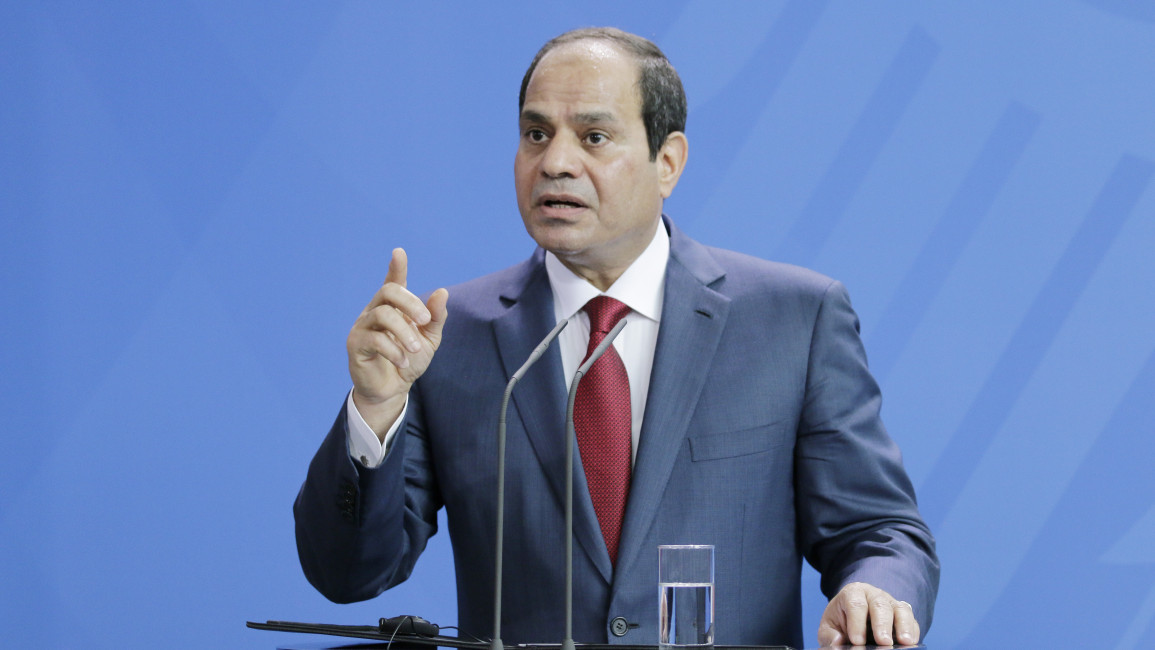Human rights groups accuse Sisi of using new Covid-19 restrictions to replace emergency law
CAIRO: President Abdel Fattah El-Sisi on Monday ratified a new law in case of the spread of Covid-19 pandemic, which human rights advocates have said could be another attempt by the government to restrict civil liberties.
The 25-article law, approved by the parliament earlier in mid-November, empowers the prime minister to take extreme measures in order to preserve the safety of citizens.
The premier is authorised to ban all public meetings, processions, celebrations, and other forms of gatherings, including exhibitions, cultural events, and festivals, as well as order the shutdown of cinemas and theatres.
The law also stipulates that citizens must abide by the precautionary measures set by the health ministry such as mandates on wearing face masks and being vaccinated.
Schools and universities can be totally or partially suspended as per the law.
Private businesses, public institutions, and all means of transportation can also be suspended, while places of worship and sports facilities can also be closed. There could also be bans on the export of some commodities.
A supreme committee will be established and tasked with managing how the rules apply, which involves most ministries.
Civil liberty restricted
The law would allow authorities to take extreme measures, including temporary restrictions on freedom of movement, which, according to prominent human rights defender Sherif Azer, could be interpreted as seeking an alternative to the state of emergency, which was ended last month.
"Most of these articles are included in the emergency law. This law sort of imposes a state of emergency in a way that limits the freedom of individuals, giving the authorities unlimited powers," Azer told The New Arab.
"The law articles here are not specific. Neither are the places in question. Does it mean, for example, enforcing curfews? The way the law is drafted is worrisome and evasive. It needs to be further explained as it could be used in violating civil rights," he argued.
Social media users or journalists who publish what the government views as "false news or disturb the public peace, harm the public interest or stir up terror among people" can be sentenced to prison or be fined up to 20,000 EGP (about $1,270).
Even before the new law had been passed, similar articles were imposed following the emergency law where dozens of activists and journalists have been sentenced to prison or stood trial over similar charges in recent years, including Alaa Abdel-Fattah after being charged with spreading false news among other accusations.
The state of emergency imposed in 1981, and the emergency law, first passed in 1958, have often been confused with each other by both Egyptians and the media alike.
A declaration of the state of emergency activates the emergency law. While the state of emergency is part of the legislation, the rest of the law remains in place.
The emergency law had been amended in 2020 among other measures to combat the impact of the Covid-19 pandemic.
Veteran human rights lawyer Fahd El-Banna argues that "the law could be deemed unconstitutional", even though, "some articles seem reasonable if there is a pandemic or an epidemic present in the country".
"The legislation is just a bulk of incoherent restrictions with no clear definitions or precise penalties. So how will it be put into force this way?" he asked.
"On the other hand, it gives the prime minister absolute powers to enforce its articles without restrictions, while ignoring the citizens' constitutional rights," Banna told The New Arab.
The government cannot threaten rights and freedoms indefinitely at will, he added.
"Anybody who has the legal capacity [such as a lawyer] can file a lawsuit before the supreme constitutional court to have the law deemed unconstitutional," he concluded.



